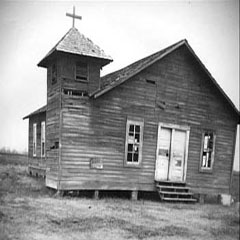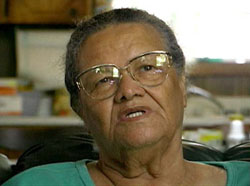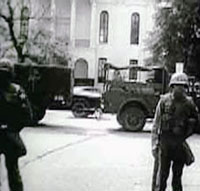A Mississippi school in the 1950s

This was an African American church in the Mississippi Delta. It was also the public school for the local community. When I was born in Mississippi in 1954, this school was still in use. The photograph was taken by Dr. John Phay, one of my father's colleagues at the University of Mississippi School of Education. They were documenting the disparity in black and white education in Mississippi at the same time that the Brown decision was being heard by the Supreme Court.
Civil Rights Soldiers

I interviewed Winson Hudson at her home in Harmony, Mississippi. She told me about Medgar Evers and how he trained her and others, as though they were soldiers in a war. And they were. That war came to my hometown in 1962 when James Meredith integrated Ole Miss. He was met by an angry mob of tens of thousands. Kennedy sent 36,000 soldiers into North Mississippi to put down the insurrection.
Growing up in Mississippi

Civil Rights isn't just a buzzword to me. I was born one week to the day after the Supreme Court Brown decision integrating schools. My birth was in an all white hospital and it would take almost 16 years for that decision to integrate my Mississippi school. The big event in my childhood was the Meredith "riot". I was eight at the time. My hometown of four thousand was occupied, or liberated - depending on how you look at it - by more than twenty thousand soldiers, mostly US Airborne.
The Mississippi Project
My focus is the Mississippi Movement, which was ground zero of the American Civil Rights Movement. I've done over sixty interviews with Civil Rights leaders and workers and I've been researching the subject for twenty-five plus years. To see a list of a few of the interviews I've done, check out our new page"The Mississippi Project".
Civil Rights in the Civil War
I once asked Movement leader Annie Devine to tell me when she thought the movement had started. She answered that it had always been there, that enslaved Africans had longed for freedom from the first. And that it was still going on. She then gave a long and beautiful history of the struggle. Her eloquent answer changed the way I looked at things. I've studied the Civil War alongside Civil Rights and I used to view these as separate things. Not anymore. The movement was also very much a part of the Civil War. Check out The Civil War & Reconstruction to see more.
